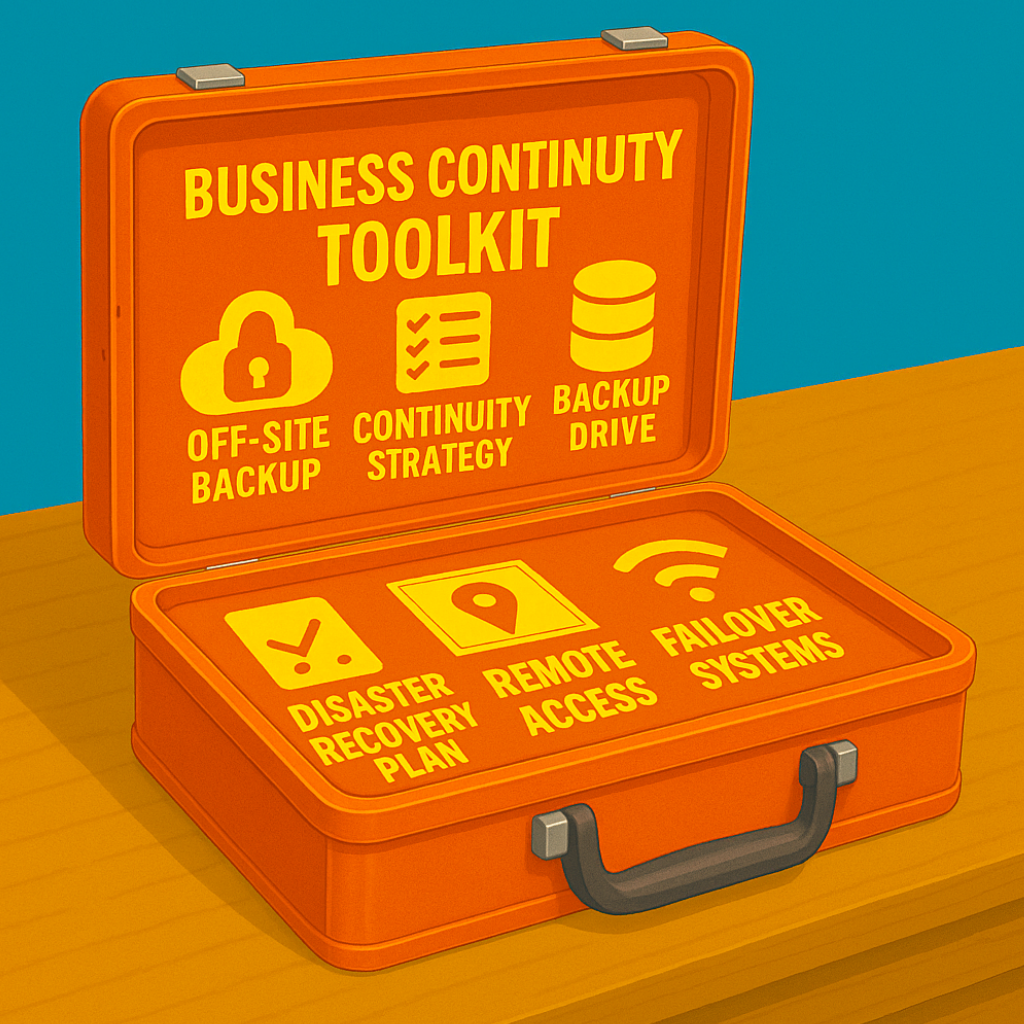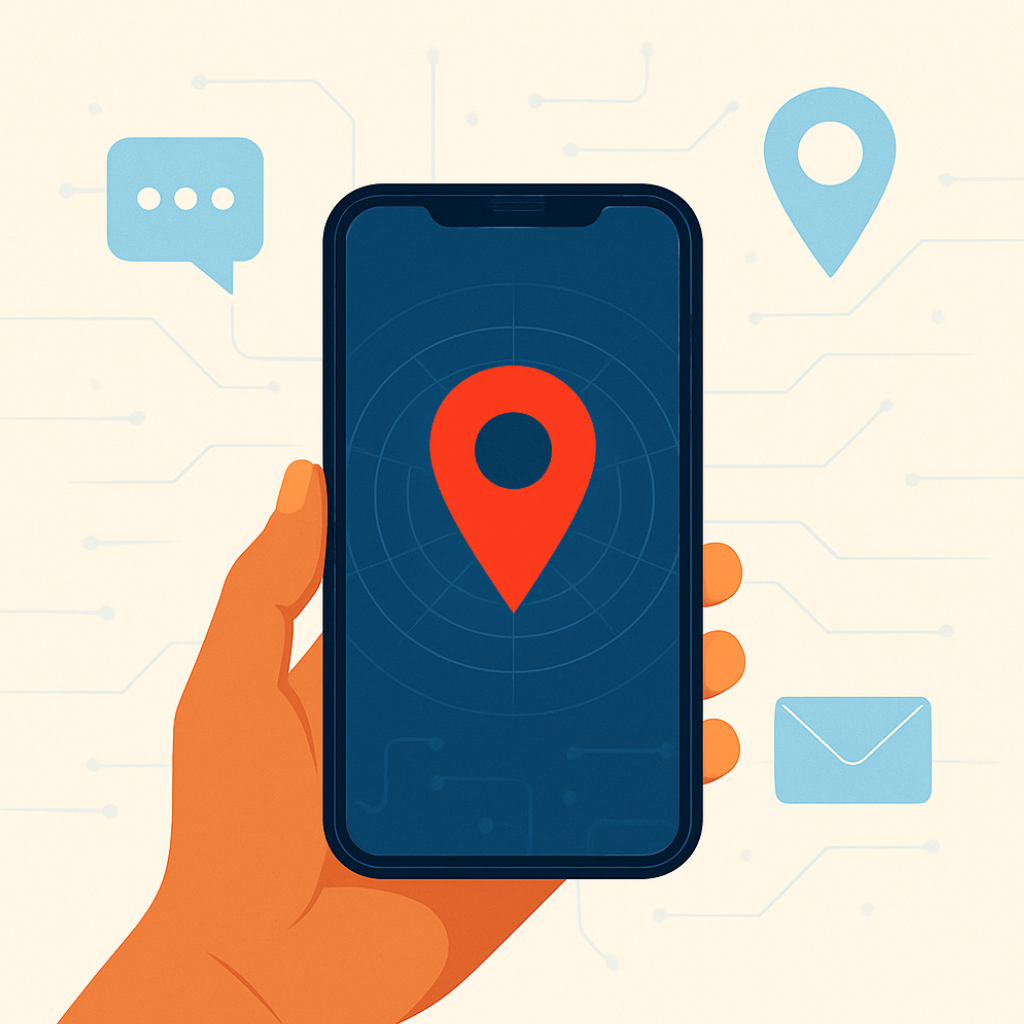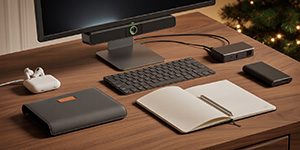November 25, 2024
How to Stop Your Phone From Spying on You
Have you ever mentioned a product or service near your phone, only to see ads for it on social media? It's unsettling, but the reality is that your phone isn't just listening—it's tracking you, too. From GPS to app permissions, there are numerous ways your devices monitor your location and activity.
If that makes you uneasy, the good news is that you can take control. This article covers why phone tracking is dangerous, the top six ways your phone tracks you, and how to stop it.
Why Phone Tracking Is Dangerous
While companies market tracking as a way to enhance user experiences, it often crosses boundaries. Here's why you should be cautious:
-
Privacy Invasion
Apps and websites collect data on your location, habits, and behaviors, often without your full understanding. This can lead to invasive targeted advertising and data harvesting—or worse, malicious tracking for criminal purposes. -
Risk of Identity Theft
If hackers gain access to your tracking data, they can piece together sensitive information about you. This increases your risk of identity theft, financial fraud, and unauthorized account access. -
Physical Security Threats
Sharing your real-time location can put your safety at risk. Stalkers or criminals could exploit this information, exposing you to threats like robbery or assault. Even something as simple as posting vacation photos in real time can make you a target.
How Your Phone Tracks You (and How to Stop It)
1. Location Services
Your phone's GPS tracks your whereabouts and records your frequent locations. This data can reveal your routines, making you vulnerable.
How to disable it:
- iPhone: Go to Settings > Privacy & Security > Location Services. Toggle off Location Services or manage individual app permissions. Under System Services, disable Significant Locations and clear your history.
- Android: Go to Settings > Location > App Permissions. Disable location tracking for specific apps or turn off Use Location. Clear location history under Location History.
2. App Permissions
Apps often request unnecessary access to your contacts, microphone, or camera, even when not in use.
How to manage it:
- iPhone: Go to Settings > Privacy & Security to review permissions for categories like Camera, Microphone, and Contacts.
- Android: Go to Settings > Apps > Permissions to manage which apps can access sensitive data.
3. Wi-Fi and Bluetooth Scanning
Your phone constantly scans for nearby Wi-Fi and Bluetooth connections, allowing third parties to track your movements.
How to disable it:
- iPhone: Swipe down from the top-right corner and toggle off Wi-Fi and Bluetooth. For more control, go to Settings > Wi-Fi and Bluetooth.
- Android: Navigate to Settings > Location > Wi-Fi & Bluetooth Scanning and disable these options.
4. Browsing Activity
Web browsers and apps track your search history and the websites you visit.
How to browse more privately:
- iPhone & Android: Use private or incognito mode. In Google Chrome, go to Settings > Privacy & Security and disable Web & App Activity. Regularly clear browsing history and cookies.
5. Ad Tracking
Phones assign a unique advertising ID to track your activity across apps and websites, generating personalized ads.
How to opt out:
- iPhone: Go to Settings > Privacy & Security > Tracking and toggle off Allow Apps to Request to Track. Disable personalized ads under Apple Advertising.
- Android: Go to Settings > Privacy > Ads and toggle on Opt Out of Ads Personalization.
6. Social Media and Search Engines
Platforms like Facebook and Google collect extensive data about your online activity to tailor ads and recommendations.
How to limit tracking:
- Social Media: Adjust privacy settings on platforms like Facebook or Instagram under Settings & Privacy > Ad Preferences.
- Google: Visit Google Account > Data & Privacy > Web & App Activity. Adjust Ad Settings to minimize tracking.
Why This Matters for Business Owners
Protecting your personal privacy is essential, but as a business owner, it's even more critical. The same tracking that affects individuals can expose your company to:
- Data breaches: Competitors or cybercriminals may exploit tracking data to gain insight into your business operations.
- Reputation damage: Leaked data can harm client trust and your brand's credibility.
- Financial loss: Identity theft or targeted attacks could compromise sensitive business accounts.
By securing your devices and limiting tracking, you're safeguarding both your personal information and your business from potential threats.
Take Action Now
If you're concerned about the security of your business's data, don't wait for a breach to happen. Schedule a FREE Security Risk Assessment with our team today. Our experts will identify vulnerabilities in your network and recommend tailored solutions to protect your business.
📞 Call us at 866-766-1313 or clickhere to schedule your assessment.
Cybersecurity isn't optional—it's essential






